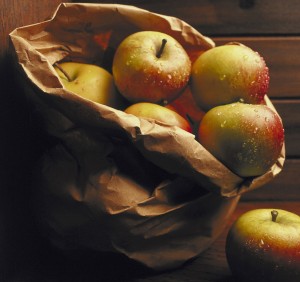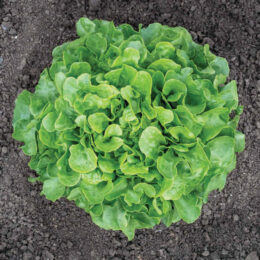 The Osmonds’ big 1970 hit “One Bad Apple” might give good advice on love, but the brother band didn’t know anything about storing apples. One bad apple can spoil the whole bunch.
The Osmonds’ big 1970 hit “One Bad Apple” might give good advice on love, but the brother band didn’t know anything about storing apples. One bad apple can spoil the whole bunch.
If you have excess apples this fall and want to store them, pick only good-quality fruit that is free of bruises, cuts or other damage. A bad apple can introduce rot organisms and release increased levels of ethylene gas, which hastens the ripening and aging process.
Store apples that have reached maturity but have not fully ripened. The fruit’s skin should have a greenish-yellow undercolor, and the flesh should be sweet, hard and crisp. Use up apples that have developed a more yellow undercolor, softened flesh and a mellow flavor.
As a general rule, the later-maturing cultivars, such as Red Delicious, Northern Spy, Stayman, Winesap, Rome Beauty, Turley and Idared, are better keepers than earlier cultivar — up to five months under ideal conditions.
Apples are best stored at 30-32 F with 90 percent relative humidity and some air circulation. Warmer temperatures will cause the apples to age faster, and low humidity can cause excessive shriveling. Ideal conditions may be difficult to find in modern housing but can be achieved if a little creativity is applied.
The most practical solution for home storage is the refrigerator. However, the air inside refrigerators is very dry, particularly in frost-free types. Pack the apples in perforated plastic bags to keep the humidity high yet still allow some air circulation through the holes in the bag.
A cool cellar or an unheated room or outbuilding can be used as long as temperature can be kept below 40 F but above 30 F with reasonable humidity. Apples will freeze at a temperature between 27.8 and 29.4 F, depending on the cultivar, and frozen fruit will deteriorate rapidly. Straw-lined pits, buried tiles and other storage methods are at the mercy of the weather and may give satisfactory results some years but may be a loss during others.
If reliable, fresh storage is not a feasible project for you, other methods of preservation are available. Many apple cultivars are well-adapted to freezing, either as sauce or slices. If all else fails, try sharing your bounty with a fruitless neighbor!
Rosie Lerner is the Purdue Extension consumer horticulturist and a consumer of Tipmont REMC. Questions about gardening issues may be sent to: “Ask Rosie,” Electric Consumer, P.O. Box 24517, Indianapolis, IN 46224, or ec@ElectricConsumer.org



